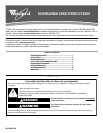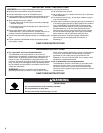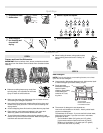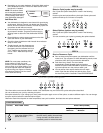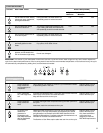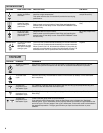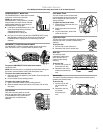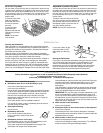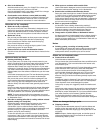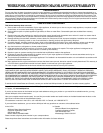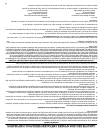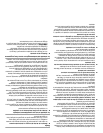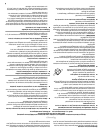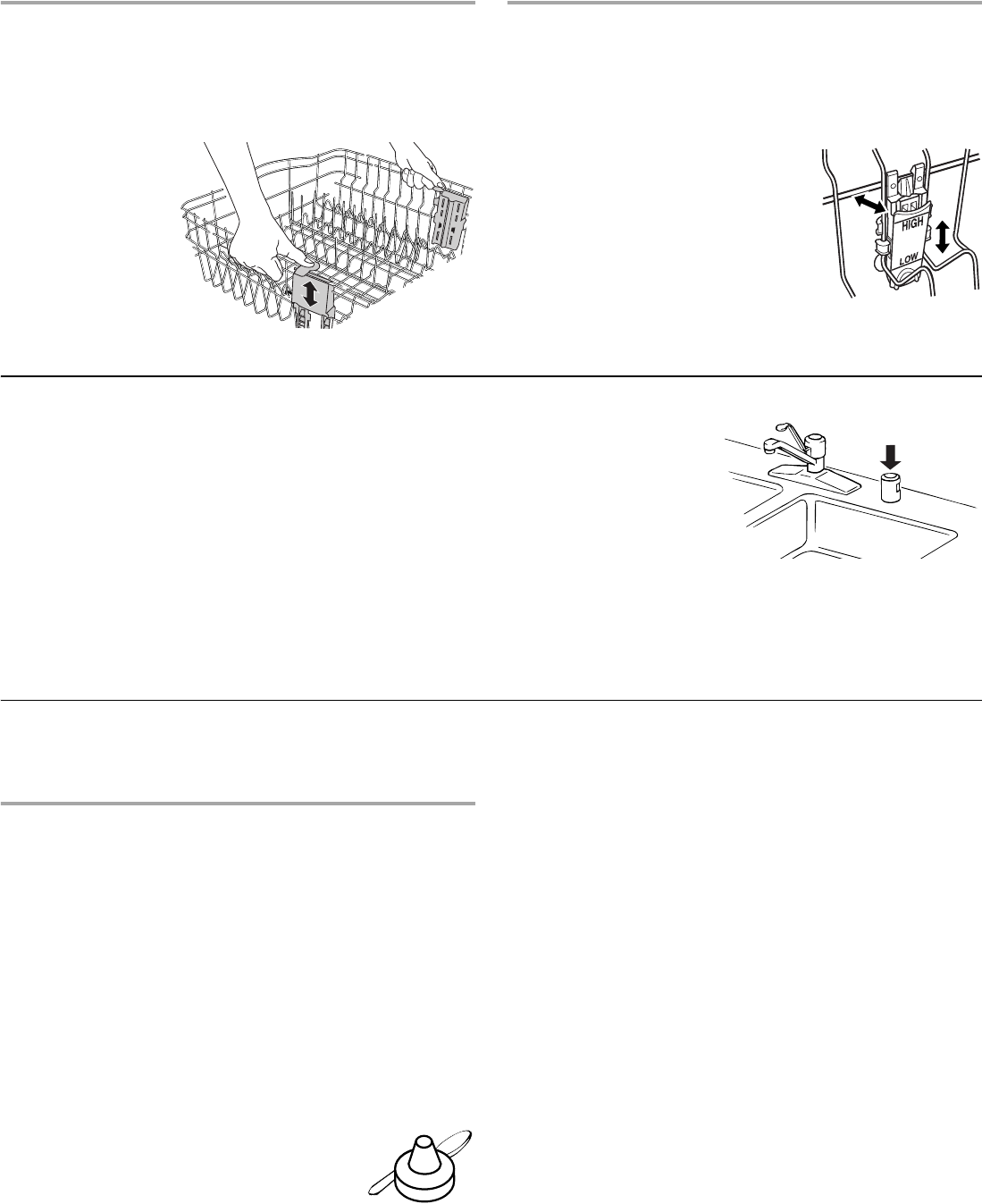
8
EZ-2-Lift™ Top Rack
You can raise or lower the top rack to fit tall items in either the top
or bottom rack. Adjusters are located on each side of the top rack.
Raise the top rack to accommodate items up to 9" (22 cm) in the
top rack and 13" (33 cm) in the bottom rack, or lower the top rack
to accommodate items up to 11" (28 cm) in both the top and
bottom racks.
To raise the rack,
press
both rack adjusters
and lift the rack until it
is in the Up position
and level.
To lower the rack,
press both rack
adjusters and slide the
rack back to its lower
position.
NOTE: The top rack
must be level.
Adjustable 2-position Top Rack
You can raise or lower the top rack to fit tall items in either the top
or bottom rack. Adjusters are located on each side of the top rack.
Raise the top rack to accommodate items up to 9" (22 cm) in the
top rack and 13" (33 cm) in the bottom rack, or lower the top rack
to accommodate items up to 11" (28 cm) in both the top and
bottom racks.
To raise or lower the rack, hold the top
rack with one hand near the adjuster and
use the other hand to pull out the top of
the adjuster. Raise or lower the rack to
one of the preset positions.
NOTE: The top rack must be level.
Dishwasher Care
Cleaning the Dishwasher
Clean the exterior of the dishwasher with a soft, damp cloth and
mild detergent. If your dishwasher has a stainless steel exterior, a
stainless steel cleaner is recommended - Stainless Steel Cleaner
and Polish Part Number 31464.
Clean the interior of the dishwasher, with a paste of powdered
dishwasher detergent and water or use liquid dishwasher detergent
on a damp sponge to clean the cooled-down interior.
A white vinegar rinse may remove white spots and film. Vinegar is
an acid, and using it too often could damage your dishwasher.
Put 2 cups (500 mL) white vinegar in a glass or dishwasher-safe
measuring cup on the bottom rack. Run the dishwasher through a
complete washing cycle using an air-dry or an energy-saving dry
option. Do not use detergent. Vinegar will mix with the wash water.
Storing the Dishwasher
If you will not be using the dishwasher during the summer months,
turn off the water and power supply to the dishwasher. In the
winter, if the dishwasher could be exposed to near freezing
temperatures or is left in a seasonal dwelling such as a second
home or vacation home, avoid water damage by having your
dishwasher winterized by authorized service personnel.
Troubleshooting
First try the solutions suggested here or visit our website and reference FAQs (Frequently Asked Questions)
to possibly avoid the cost of a service call.
In the U.S.A., www.whirlpool.com In Canada, www.whirlpool.ca
Dishwasher is not operating properly
■ Dishwasher does not run or stops during a cycle
Is the door closed tightly and latched?
Is the right cycle selected?
Is there power to the dishwasher? Has a household fuse blown,
or has a circuit breaker tripped? Replace the fuse or reset the
circuit breaker. If the problem continues, call an electrician.
Has the motor stopped due to an overload? The motor
automatically resets itself within a few minutes. If it does not
restart, call for service.
Is the water shutoff valve (if installed) turned on?
It is normal for certain cycles to repeatedly pause for several
seconds during the main wash.
■ Clean light is flashing
Call for service.
■ Dishwasher will not fill
Is the overfill protection float able to
move up and down freely? Press down
to release.
■ Dishwasher seems to run too long
The dishwasher can run up to 3¹⁄₂ hours depending on soil
level, water temperature, cycles and options.
Is the water supplied to the dishwasher hot enough? The
dishwasher runs longer while heating water.
Is the dishwasher cycle time within the cycle times? See cycle
sections wash times. A delay automatically occurs in some
wash and rinse cycles until the water reaches the proper
temperature.
This dishwasher is equipped with an optical sensor wash that
detects water temperature, soil and detergent amount. Wash
cycles are adjusted based on what is sensed.
IMPORTANT: The very first wash cycle after installation in your
home will be adjusted to include an additional 2 rinses. This
cycle must not be interrupted for proper sensor adjustment. If
this adjustment cycle is canceled or stopped before the Clean
light comes on at the end of the cycle, the next wash cycle will
repeat this sensor adjustment.
■ Water remains in the dishwasher
Is the cycle complete?
■ Detergent remains in the covered section of the dispenser
Is the cycle complete?
Is the detergent lump-free? Replace detergent if necessary.
Is the dispenser door blocked by dishes or cookware when the
dishwasher door is closed?
■ White residue on the front of the access panel
Was too much detergent used?
Is the brand of detergent making excess foam? Try a different
brand to reduce foaming and eliminate buildup.
If you have a drain air gap,
check and clean it if the
dishwasher isn't draining
well.



